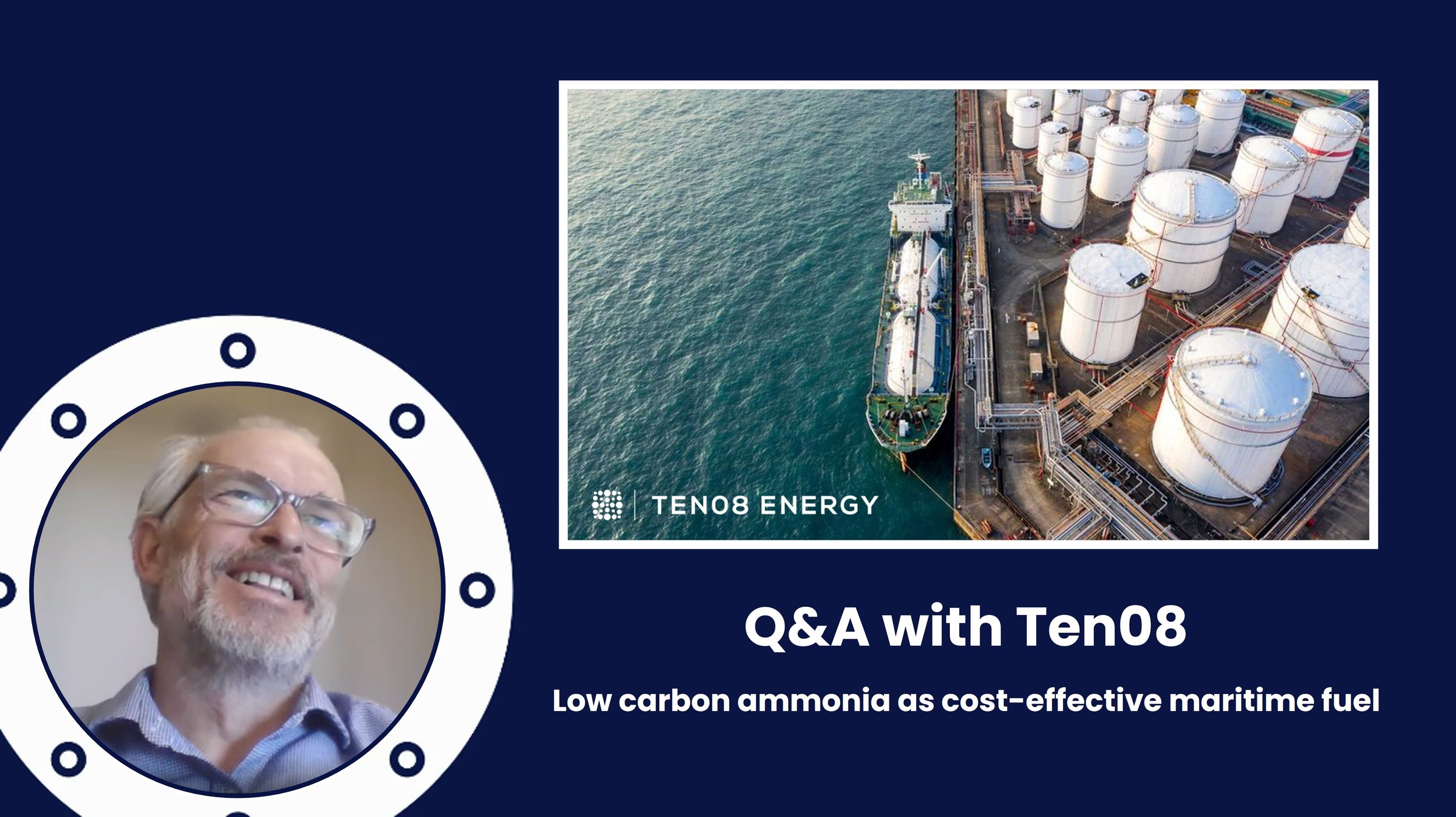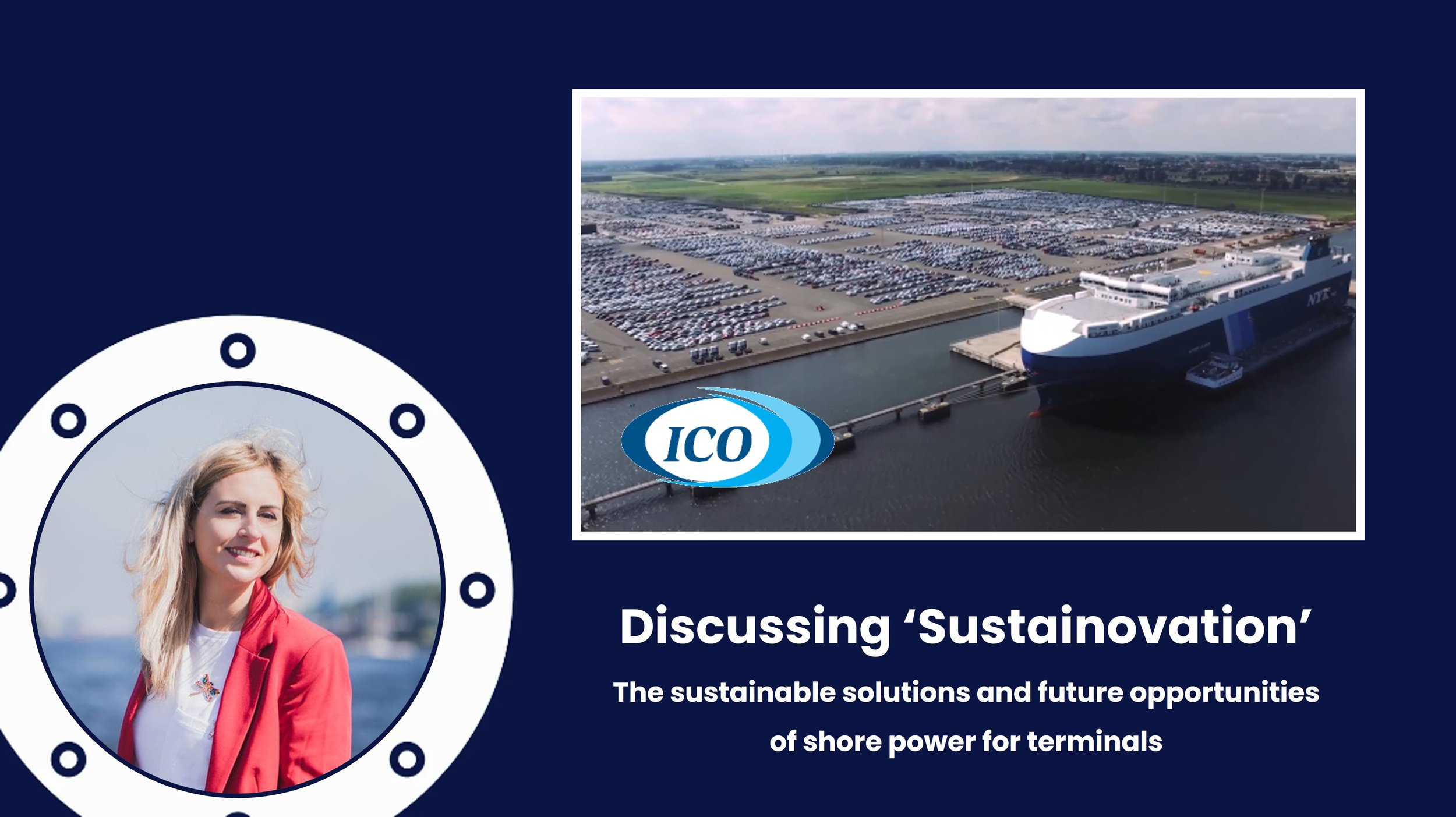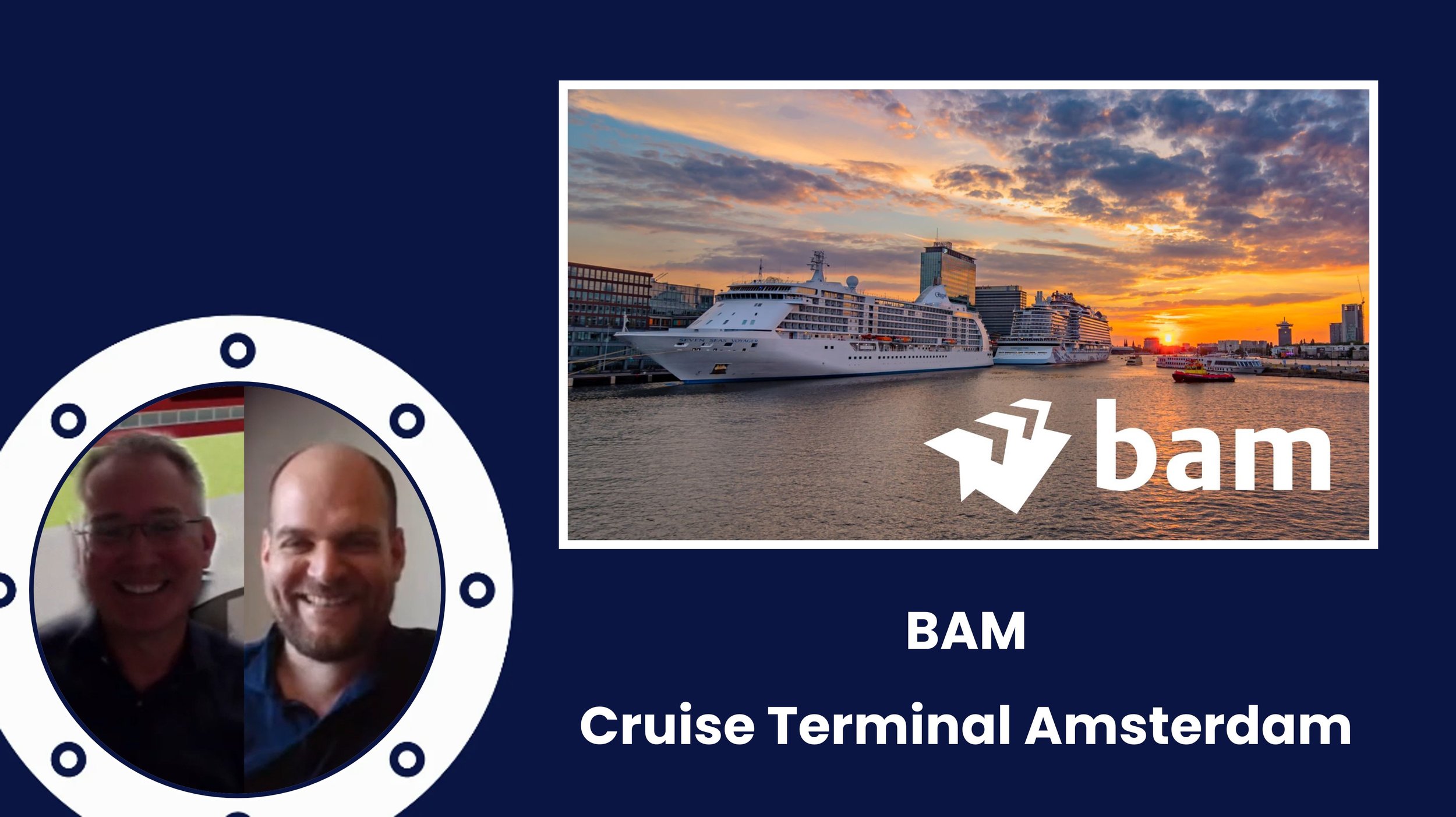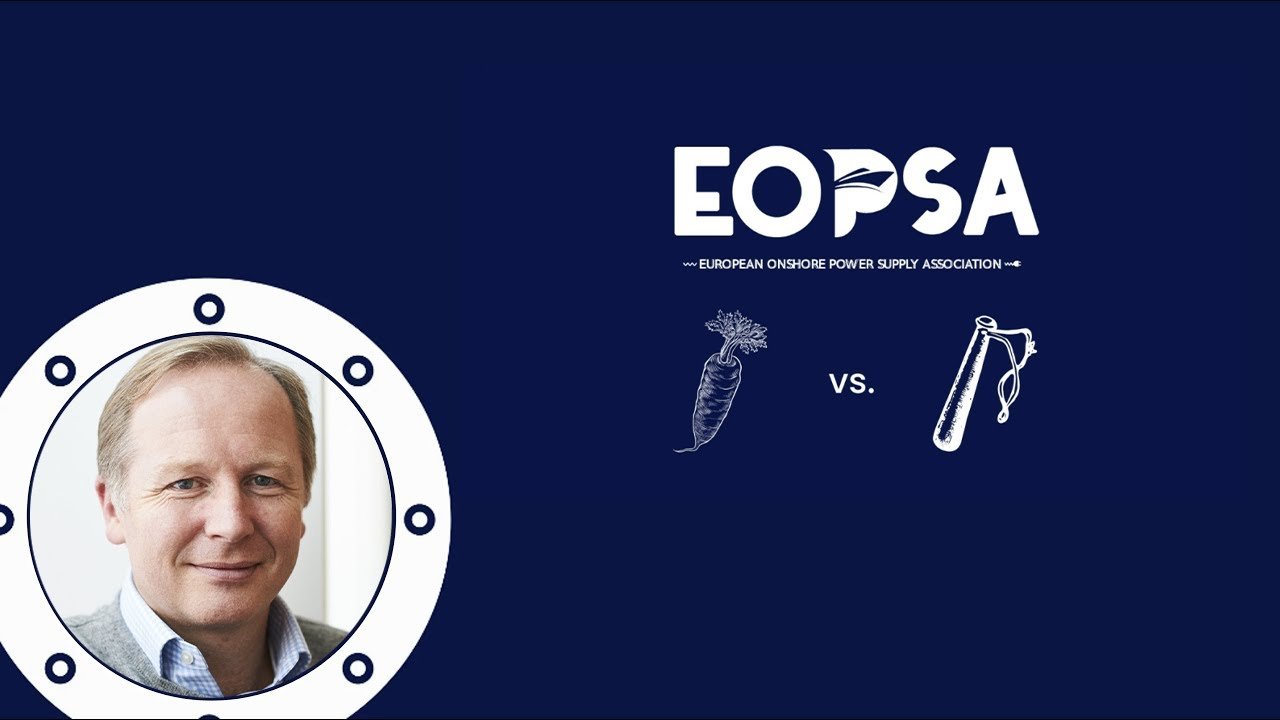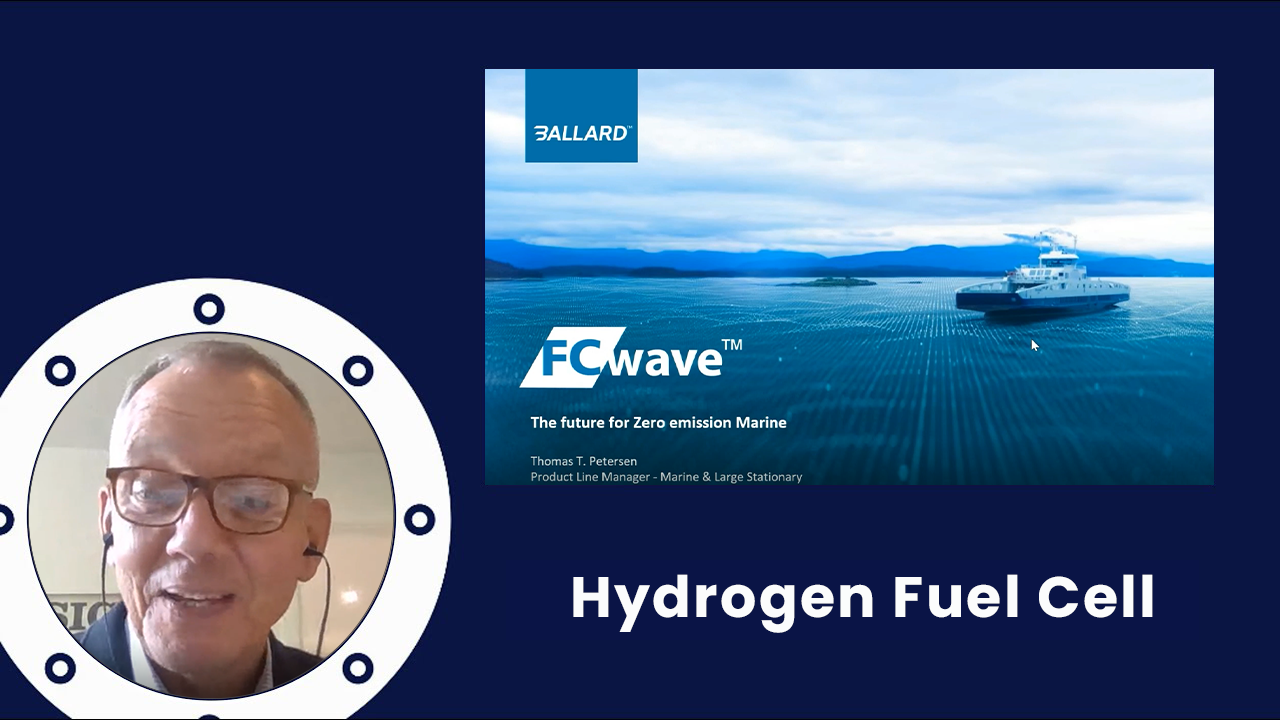Biofuels in decarbonization for maritime industry - Q&A with FincoEnergies
About Q&A
This Q&A session explores the role of biofuels in decarbonizing maritime transport, featuring Johannes Schurmann, Commercial Director Marine at FincoEnergies.
FincoEnergies supplies biofuels - primarily FAME biodiesel - to the marine sector. The company supports shipowners in adopting biofuels with end-to-end services, from technical assessment to regulatory documentation. With EU regulations like FuelEU Maritime, EU ETS, and CII accelerating decarbonization, biofuels are a viable short-term solution, especially for existing vessels.
Johannes shares insights into market developments, pricing trends, regulatory impacts, and operational considerations, focusing on the practicalities of switching to biofuels. Finco’s approach goes beyond fuel supply - it includes support for planning, reporting, compliance, and on-board use.
Key insights
FAME biodiesel is the most scalable and widely adopted biofuel in shipping today, largely because land-based fuel standards already require blends of 7–10% biodiesel in road transport. This widespread mandate ensures a well-established global supply chain, making FAME readily available for marine applications.
Cold Flow Properties (CFPP) are a key technical consideration when it comes to biofuels, especially for smaller vessels without heated tanks, as biofuels tend to ‘copy’ cold flow properties from the feedstock. Newbuild ships are advised to install heating coils in their tanks and piping to accomodate biofuels with poor cold flow properties.
Biofuels offer financial and regulatory advantages under FuelEU Maritime and EU ETS due to their low or zero carbon emission factors. Surplus biofuel use can be monetized through pooling (mandatory market) and Scope 3 credits (voluntary market) - though rules for the latter are still evolving. Abatement costs for bio-diesel are in the order of $300 per mT CO2-eq in Rotterdam and Singapore excluding FuelEU pooling benefits.
The Netherlands (Rotterdam) leads Europe in marine biofuel adoption due to its HBE (Renewable Fuel Units) incentive system. Singapore has caught up rapidly in market share, aided by changes in blending regulations.
Operational concerns, including potential filter or fuel clogging or marine growth are minimal if the fuel is handled properly. Biofuels based on residuals require more housekeeping, which is why FincoEnergies provides full guidance and documentation to mitigate any risks and emissions reporting. The only operational constraint for existing engines is the lower volumetric energy density for most biofuels, which can lead to issues in case a (very) high constant engine load is required. Most engine manufacturers allow for a B30 blend (30% biofuels) without any concerns.
Questions asked
What types of biofuels does FincoEnergies supply?
Primarily FAME (Fatty Acid Methyl Esters) biodiesel made from waste or residual feedstocks. HVO and residual biofuels are also used, but FAME is the most scalable.
Why did Finco shift from HVO to FAME?
HVO is high-quality but too expensive for wide marine adoption. FAME is lower-cost and operationally viable.
What’s the difference in energy content between fossil and biofuels?
Biofuels typically have ~8% lower energy content per kg. This must be corrected for in cost and emissions calculations.
How is abatement cost calculated?
By adjusting for energy content differences and comparing the price and emission factors of fossil vs. biofuel. Expressed as USD/ton CO₂.
Why is Rotterdam a hub for biofuel bunkering?
Due to the HBE system, which incentivizes supplying biofuels to the marine sector. Rotterdam dominates EU bio-bunkering volumes.
Why did prices converge between Rotterdam and Singapore in late 2023?
The Dutch government reduced the marine incentive, and Singapore adjusted blending rules to allow up to B30, reducing cost differences.
What are anti-dumping duties and why do they matter?
Europe introduced anti-dumping tariffs on Chinese biodiesel over concerns about fraudulent feedstock origins. Singapore, without such duties, remains a cheaper option for some suppliers.
Are there risks of fraud in biofuel supply chains?
Concerns exist, especially with high volumes of “waste” feedstock from China, but investigations have not proven fraud. Sustainability certification (e.g., ISCC) is required.
Are there real operational issues with biofuels?
No major issues have been reported that Johannes is aware of in the past 6 years. Fuel stability is managed with additives, and proper heating avoids cold flow problems. Biofuel use can even reduce sludge and maintenance.
What is Finco’s approach to supporting shipowners?
They assess vessel compatibility, support class exemptions (if needed), provide crew training, and supply report-ready documentation for FuelEU, ETS, and MRV/DCS.
Can surplus biofuel use be monetized?
Yes:
Pooling allows over-compliance from one vessel to be used across a fleet.
Voluntary Scope 3 credits can be sold to cargo owners, if usage exceeds regulatory minimums (“additionality”).
What is “additionality” in the voluntary market?
Emission reductions must go beyond the regulatory baseline (e.g., more than 2% for FuelEU) to be sold as Scope 3 credits. Rules are still under discussion by organizations like RSB and the Smart Freight Centre.
Are there other incentives besides EU regulations?
Some ports (e.g., Amsterdam, Singapore) offer port fee discounts for ships using biofuels, but the impact varies.
What’s the long-term price expectation for biofuels?
Uncertain. Waste feedstock supply is limited, which could drive prices up. New feedstocks (e.g., intermediate crops) may help, depending on regulatory acceptance.
How does Finco help with reporting and compliance?
They provide a Biofuel Delivery Statement, including emission factors and sustainability data, customized for each regulation (FuelEU, EU ETS, etc.).
Are retrofits required to use biofuels?
Usually not. Heating systems help, especially for MGO blends, but most vessels can run on biofuel without major modifications.


